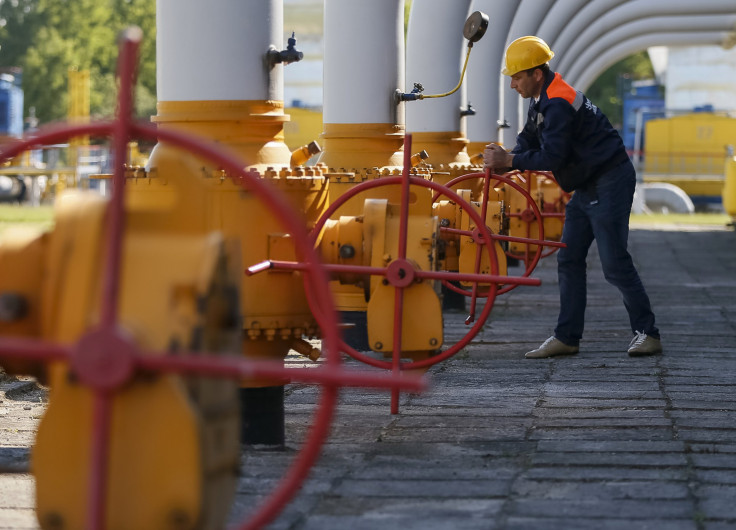Here's How Ukraine Can Tweak Its Natural Gas Needs During A Russian Shut Off

In the midst of a natural gas supply cut-off by Russian supplier Gazprom, Ukraine's gas inventory will dwindle within a month, but analysts are optimistic that the disruption won’t last that long.
Gazprom stopped supplying gas to Ukraine on Monday and warned the cutoff could diminish the amount of gas flowing to the rest of Europe through Ukraine if the pricing dispute and political tension between Russia and Ukraine isn't resolved.
Michael Bradshaw, professor of global energy at the U.K.'s University of Warwick Business School said, “Everyone’s a loser in this stalemate.”
According to Palti-Guzman, the EU gas inventories are 64 percent full, and Ukraine’s are 42 percent full, leaving both unable to sustain their needs for very long. Ukraine imported 63 percent of the natural gas it consumed in 2012 from Russia and produced the remaining 37 percent domestically, according to the U.S. Energy Information Administration. Natural gas supplies about 40 percent of Ukraine’s energy needs, and about one-fifth of the EU’s natural gas supply flows through Ukraine.
“The good news is we are in summertime, with less need for gas,” Palti-Guzman said. Plus, this winter in Europe was milder than others, leaving more gas in storage. “In a way, that’s good timing to get a shortage of gas.”
Both times when Gazprom previously shut off gas deliveries to Ukraine, in 2006 and 2009, the winter weather multiplied the burden on Ukraine, as consumers needed gas to heat their homes and buildings.
If necessary, Ukraine could siphon gas from its pipelines that’s meant for Europe and pay European companies instead of Gazprom. Buying gas from Slovakia, Poland and Hungary are among Ukraine's options, according to Katja Yafimava, senior research fellow at Oxford Insitute Global Energy Studies, of the natural gas research program.
"Even if the necessary connection pipe with Slovakia is built by September then total possible supply via reverse would be around 12 bcm [billion cubic meters] and Ukraine will still need to buy Russian gas," she said.
And Europe would need to reduce consumption or find other suppliers.
According to a March Eurasia Group note, Europe has two ways to reduce dependence on Gazprom in the next three to five years without major investments. One is the construction of gas infrastructure: gas storage facilities, equipment to reverse the flow of gas through pipelines and additional “interconnector” pipelines, short lines connecting European countries with each other.
The second is a way to facilitate a more efficient wholesale gas market in the EU. Called “network code harmonization,” the terms of the unified internal energy market already became law in 2011 in a European Commission energy package, but several member countries have been slow to adopt the plan. This is particularly true of the Baltic states whose energy infrastructure, harkening back to Soviet-era, lacks connections to the power and gas networks of the EU.
Another near-term option for Ukraine and Europe would be to accept payment terms from Russia.
“The only way out is for the EU to persuade Ukraine to accept an agreement and be financial guarantors,” Bradshaw said.
Russia’s Gazprom wanted a $2 billion installment from Ukraine on Monday morning, and said it's filing a lawsuit in a Swedish arbitration court to force Ukraine to pay $4.5 billion for gas already delivered. Ukraine’s gas company Naftogaz has filed a suit in the same court seeking $6 billion from Gazprom for claimed overcharging since 2010.
Russia had been delivering gas to Ukraine at a subsidized rate lower than what it charged other European countries, but then hiked the price in February by 44 percent after Ukrainian protestors toppled their pro-Russia government.
Russia and Ukraine, mediated by the European Commission, have been negotiating the gas price for weeks.
“As the commission is convinced that a solution is still possible and in the interest of all parties concerned, it will reflect on the next steps and on when to bring the parties together again,” the European Commission said in a statement on Monday.
© Copyright IBTimes 2024. All rights reserved.






















